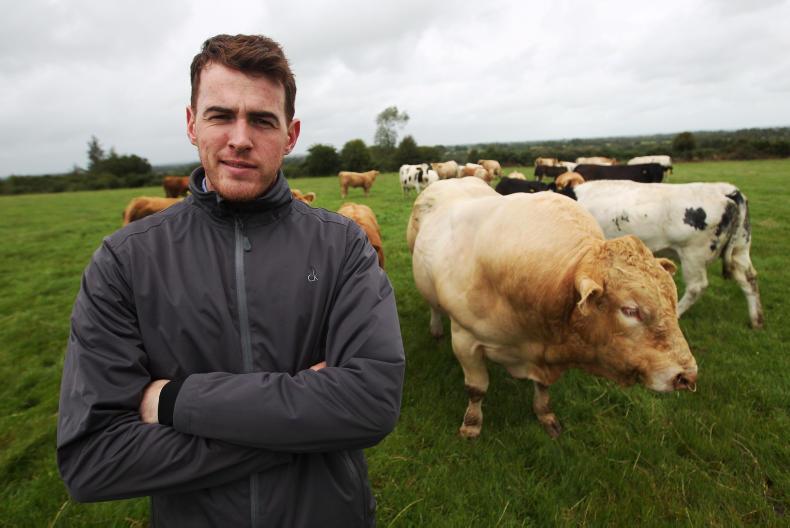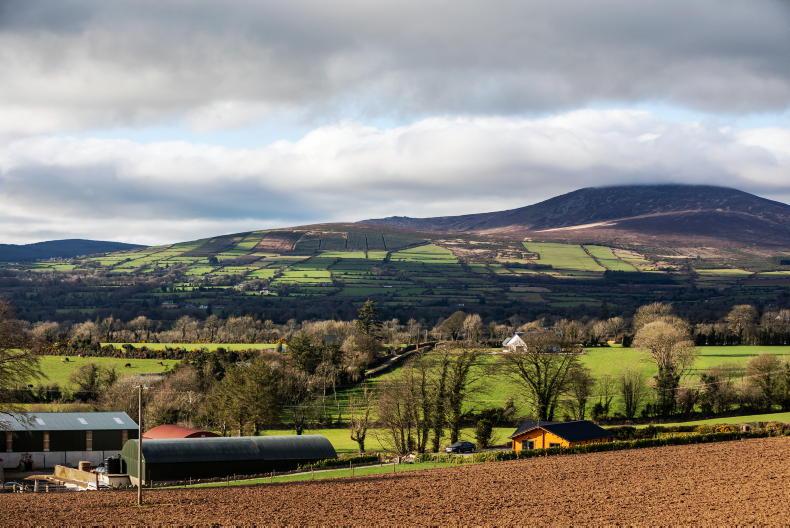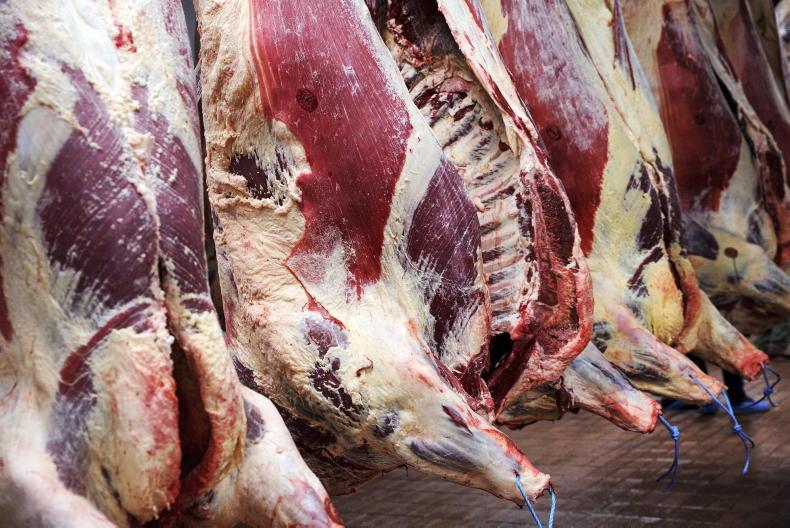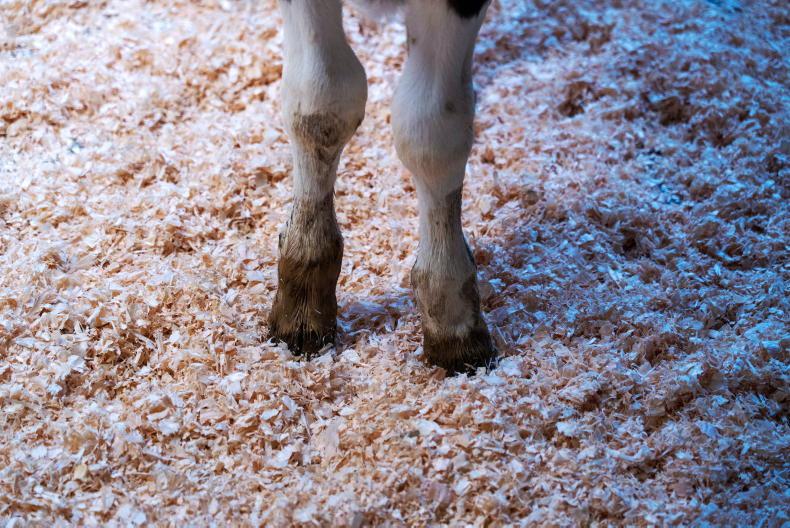Any attempt to address the issue of an aging farming population by paying older farmers to retire will be doomed to fail, according to a researcher who specialises in the area.
Dr Shane Conway from the Rural Studies Unit in the Geography department at the National University of Ireland Galway has written a number of papers on farm succession.
He told the Irish Farmers Journal that any new scheme based on the old ones will not work.
The biggest roadblock in the last scheme, he says, was one condition it contained– that “persons intending to retire shall cease agricultural activity forever”.
This, Conway believes, was wrong and one of the main reasons for its failure.
“I think it was so crazy, what was going on in the last retirement scheme, that if they do try to step into this space again, that there needs to be a massive understanding of the way of life, the potential consequences for health and wellbeing, social life and what’s next, like what happens then,” he said.
Human side
Conway believes the last scheme was overly preoccupied with financial incentives and ignored the human side of the farm succession process.
He has studied the concept of symbolic capital, which for farmers relates to their recognition and reputation as productive or good farmers and how that can change by taking up a retirement scheme.
“Farmers have a big issue with this whole kind of identity shift [when retiring] towards either taking it handy or taking a step back or they mustn’t be able to do it anymore,” he explains.
There’s more attached to the farm and farming as a profession than just money
The industry has to move away from considering retirement in the same way as other work sectors and develop something more suitable for farmers, he maintains.
“There’s more attached to the farm and farming as a profession than just money,” he elaborates.
“There’s a social side and an emotional attachment that needs to be taken into account, otherwise we will devise a retirement scheme that’s all in vain and won’t be successful and cause issues down the line.”
Farm progression scheme
Conway suggests a farm progression scheme as a suitable alternative.
This would not require the older farmers to step away completely, resulting in a loss of years of experience, but
rather facilitate a gradual transfer of control to younger farmers.
However, he warns that “generational shadows” have to be avoided. This happens when a farmer avails of the scheme and, in theory, ownership passes on, but the older generation continues to make all managerial decisions.
To encourage the process, Conway suggests incorporating succession planning into the Green Cert, or as part of the application process for farm partnerships.
“I find it a little bit unusual that you can avail of a farm partnership without ever having sat down in front of a farm succession facilitator to thrash out ideas,” he says.
Ultimately, the older generation is the one who decides whether generation renewal happens or not
He said the next CAP could fund an independent body that engages with families to discuss how farms will be passed on, as it remains a taboo topic for many families.
“The generational renewal objective needs to have intergenerational consideration. It can’t just focus on facilitating the younger generation to pursue a career in farming. There needs to be considerations for the social and emotional wellbeing of the older generation,” he explains.
“Ultimately, the older generation is the one who decides whether generation renewal happens or not, because they have the ownership and control. So, without taking into account their needs and considerations and perspective, such schemes probably won’t be successful.”
Conway says it was naive to think a retirement scheme alone could solve an issue that stretched back generations and applied to farms across the world.
“Almost a third of our farmers are over 65. That’s the demographic that really has to be considered, not just from an economic perspective, a hand-out, ‘here you go, please retire’, it’s a lot deeper than that.”
A National Rural Network survey of over 320 farmers in 2017 revealed a complex emotional attachment to the farm and the reasons why some farmers simply cannot bring themselves to retire.
of farmers said they could not imagine what they would do if they permanently ceased all farming activity.
of those farmers said their quality of life as a farmer was far greater than could be quantified by any financial incentive to leave farming.
of farmers said that farming is not only their job, but also their lifestyle, pastime and social outlet.
of farmers said the farm represents years of hard work and their lifetime’s achievement.
said their farm and occupation have a greater symbolic importance than financial importance.
Read more
Lump sum payments for farmers to retire
IFJ debate: candidates commit to farm retirement scheme
Any attempt to address the issue of an aging farming population by paying older farmers to retire will be doomed to fail, according to a researcher who specialises in the area.
Dr Shane Conway from the Rural Studies Unit in the Geography department at the National University of Ireland Galway has written a number of papers on farm succession.
He told the Irish Farmers Journal that any new scheme based on the old ones will not work.
The biggest roadblock in the last scheme, he says, was one condition it contained– that “persons intending to retire shall cease agricultural activity forever”.
This, Conway believes, was wrong and one of the main reasons for its failure.
“I think it was so crazy, what was going on in the last retirement scheme, that if they do try to step into this space again, that there needs to be a massive understanding of the way of life, the potential consequences for health and wellbeing, social life and what’s next, like what happens then,” he said.
Human side
Conway believes the last scheme was overly preoccupied with financial incentives and ignored the human side of the farm succession process.
He has studied the concept of symbolic capital, which for farmers relates to their recognition and reputation as productive or good farmers and how that can change by taking up a retirement scheme.
“Farmers have a big issue with this whole kind of identity shift [when retiring] towards either taking it handy or taking a step back or they mustn’t be able to do it anymore,” he explains.
There’s more attached to the farm and farming as a profession than just money
The industry has to move away from considering retirement in the same way as other work sectors and develop something more suitable for farmers, he maintains.
“There’s more attached to the farm and farming as a profession than just money,” he elaborates.
“There’s a social side and an emotional attachment that needs to be taken into account, otherwise we will devise a retirement scheme that’s all in vain and won’t be successful and cause issues down the line.”
Farm progression scheme
Conway suggests a farm progression scheme as a suitable alternative.
This would not require the older farmers to step away completely, resulting in a loss of years of experience, but
rather facilitate a gradual transfer of control to younger farmers.
However, he warns that “generational shadows” have to be avoided. This happens when a farmer avails of the scheme and, in theory, ownership passes on, but the older generation continues to make all managerial decisions.
To encourage the process, Conway suggests incorporating succession planning into the Green Cert, or as part of the application process for farm partnerships.
“I find it a little bit unusual that you can avail of a farm partnership without ever having sat down in front of a farm succession facilitator to thrash out ideas,” he says.
Ultimately, the older generation is the one who decides whether generation renewal happens or not
He said the next CAP could fund an independent body that engages with families to discuss how farms will be passed on, as it remains a taboo topic for many families.
“The generational renewal objective needs to have intergenerational consideration. It can’t just focus on facilitating the younger generation to pursue a career in farming. There needs to be considerations for the social and emotional wellbeing of the older generation,” he explains.
“Ultimately, the older generation is the one who decides whether generation renewal happens or not, because they have the ownership and control. So, without taking into account their needs and considerations and perspective, such schemes probably won’t be successful.”
Conway says it was naive to think a retirement scheme alone could solve an issue that stretched back generations and applied to farms across the world.
“Almost a third of our farmers are over 65. That’s the demographic that really has to be considered, not just from an economic perspective, a hand-out, ‘here you go, please retire’, it’s a lot deeper than that.”
A National Rural Network survey of over 320 farmers in 2017 revealed a complex emotional attachment to the farm and the reasons why some farmers simply cannot bring themselves to retire.
of farmers said they could not imagine what they would do if they permanently ceased all farming activity.
of those farmers said their quality of life as a farmer was far greater than could be quantified by any financial incentive to leave farming.
of farmers said that farming is not only their job, but also their lifestyle, pastime and social outlet.
of farmers said the farm represents years of hard work and their lifetime’s achievement.
said their farm and occupation have a greater symbolic importance than financial importance.
Read more
Lump sum payments for farmers to retire
IFJ debate: candidates commit to farm retirement scheme









SHARING OPTIONS